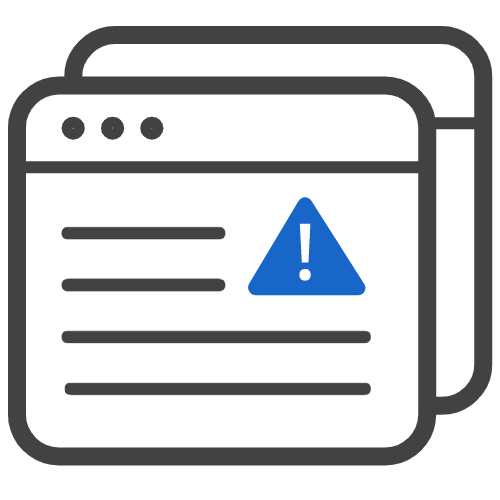Scammers are exploiting PayPal’s 'request money' feature to scare people into calling a dodgy phone number and giving away their personal details.
Fraudsters are sending emails requesting payments for overdue taxes, or high-value items such as Apple MacBooks.
This is the latest in a long line of PayPal email scams. Last year, we reported on scam emails claiming your PayPal account has been locked.
Watch our video above, or read on to learn about how this scam works.
PayPal payment request scam
This scam starts with you receiving an automated 'money request' email from a genuine PayPal email address.
This might seem above board, but scammers are exploiting PayPal's service to send fake payment requests for high-value items, and are posing as HMRC to demand 'overdue' tax payments.
The latest email states 'HMRC Tax Payment Overdue. Please send a balance of [£] within 48 hours to avoid a warrant being issued for your arrest or call [phone number]'. Watch our video at the top of the page to see exactly how it works.
This particular email tries to panic you into calling a dodgy phone number. Other payment requests try to trick you by asking you to phone a number if you don't recognise the request.
If you call the number, you'll be ringing a scammer phishing for personal information such as your name, date of birth and bank account details.
PayPal said: 'We are aware of this well-known phishing scam and have put additional controls in place to mitigate this specific incident.
'Nonetheless, we encourage customers to always be vigilant online and to contact customer service directly if they suspect they are the target of a scam.’
How to report PayPal scams
If you receive an email out of the blue claiming to be from PayPal, don't click on anything or call any phone number.
You can view any PayPal requests by logging into your account and selecting 'Activity.' From here, you can click on the fraudulent request and cancel it.
If you suspect your account has been compromised, you can change your password and security questions by logging into your account.
Any suspicious emails can be forwarded to phishing@paypal.com and report@phishing.gov.uk.
Watch out for these latest PayPal email scams
Sneaky phishing emails warn that your account has been suspended, ask you to confirm your email or claim that you’ve added a new phone number.
These phoney emails carefully use PayPal’s logo, branding and other crafty tactics to try to catch you out, but there are some giveaways that expose these scams.
Find out how to spot, avoid and report these scams.
Your account has been suspended
This sneaky scam is hard to detect. It claims that your account has been suspended, which could immediately spark panic and cause you to react.
The email appears to come from a legitimate 'service@paypal.com' email address, but if you take a closer look you will see that this isn't the case.
Scammers often mask their email address to make the email appear genuine, this is known as spoofing. Here you can see that the true sender is a nonsensical mess of letters, and the true email domain that's revealed is not a '@paypal.com' but '@googlegroups.com'.
The email also includes a dodgy link to 'Login to PayPal'. We don't recommend clicking on suspicious links in emails, but for our research, we took a deeper look at this link which appeared to go to a LinkedIn page.
The link then redirects you to a scam website called 'oximade.com', which the security filters on our browser warned us may contain dangerous content or software to steal personal and financial information.
PayPal 'Confirm your email' scam
This email opens with PayPal's logo and is titled ‘Confirm your email’.
It then states: ‘According to our records, Some information on your account appears to be missing or incorrect because some unusual activities may have accessed your account.
‘We require additional information from you everytime your account try to sign in to a new device,’
‘Click the button below, follow the instructions and we will update you with our final decision.’
It may look official with PayPal's logo and brand style, but an easy giveaway here is that the email is poorly written with a number of grammatical errors.
Scammers can easily spoof email addresses to mask the identity of the true sender. While an email like this one may appear to come from PayPal, if you examine the sender's email address you'll see that it comes
Always be on your guard against any emails claiming that details on your account need changing or confirming if you haven’t requested this yourself - especially if you're asked to follow a link to confirm your details.
If you do receive an email like this, it’s best to check your account with PayPal directly to see if there have been any recent changes to your account.
Typically, PayPal will need to confirm your email address once you have initially signed up and won’t ask you again.
A phone number has been added to your account
Another PayPal email scam doing the rounds tells you that a phone number has been added to your account.
It says: ‘Your phone number helps us reach you quickly and ensures your transactions are more secure. If you made this change, great!’
It then includes a blue button with the words ‘No it wasn’t me’ which invites you to click on a dodgy link.
It's hard to easily spot the scam in this email. However, it's important not to click on links in emails like this and instead, cross-reference the email’s claims by logging into your PayPal account.
Avoiding and reporting these scams
We have reported all of these scams.
PayPal has confirmed that these emails aren’t from them and say that genuine emails will always address you by your first and last name.
On its website, PayPal states that emails are the typical method it uses to contact customers.
PayPal advises you to check that the email is sent from a genuine PayPal email address and always verify information given in emails with your PayPal account. You can forward suspicious emails to spoof@paypal.com.
You can also report scam emails by forwarding them to report@phishing.gov.uk.
How to get your money back after a scam
Problems getting your money back after a scam?
Different banks might have different policies on reimbursing victims of fraud, but all banks have a responsibility to protect your money.
If you think your bank hasn’t handled your case properly, you have the right to challenge their decision.
Real life story
Scott, 30, from London was targeted by a sophisticated bank scam that tricked him into giving out his pin number.
I’m very internet savvy, but the scam I was taken in by was so slick it was totally believable.
Emotional support after a scam
Being scammed can take a huge toll on your mental health. You might find it helpful to talk to someone about what you’re going through. It’s not your fault, and there are plenty of non-judgemental advice lines you can call who will understand.

Mind
Mind has a confidential information and support line, Mind Infoline, available on 0300 123 3393 (lines open 9am - 6pm, Monday - Friday).
Visit Mind
Victim Support
Victim Support has a free helpline where you can speak to someone confidentially available on 0808 16 89 111 (lines open 24/7).
Visit Victim Support











Comments